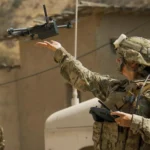Introduction
The global food production generates three times more waste than all the portions required to feed human populations who face hunger daily. These statistics transcend both ethical concerns and pose a critical threat to the environment. The substantial emissions from food waste must be addressed urgently because it stands as a major environmental issue. Olio represents a revolutionary startup which aggressively opposes food waste. Olio emerged from the vision of founders Saasha Celestial-One and Tessa Clarke back in 2015 to establish itself as a worldwide phenomenon which prompts people to offer away their unused household items and food surplus before they end up in waste disposal. This article examines Olio through its historical development along with its environmental impact and business hurdles as it progresses toward its promising future vision.
The Genesis of Olio
Founder Tessa Clarke had her life-changing moment at the core of Olio’s establishment when she encountered the situation in 2014. When Tessa relocated from her Swiss residence in 2014 she discovered usable food this prevented her from moving along with her but she had to discard it. After deciding to search for someone to accept the food she had to discard it since no one was willing to take it. After this moment Tessa learned that there should exist a better method for handling unused food.
After her return to the United Kingdom Tessa explained her story to Saasha Celestial-One who had financial experience while also being devoted to environmental sustainability issues. The two women recognized their shared understanding of creating a solution which made sharing community surplus food easily accessible to everyone. And so, Olio was born.
What is Olio?
The Olio application functions as a free tool that binds communities through mutual exchanges of unused food products and personal goods between local neighbors and businesses. Users may submit photographs together with item descriptions through the app which lets surrounding members view and request these items. The application works to stop useful products such as food from discarding them into trash containers while it promotes local communities and minimizes waste-related environmental consequences.
The app is incredibly user-friendly. Users can access the app through simple download then profile creation before they can begin posting what they wish to donate. Each item requester chooses with the donor a suitable pickup time and destination. The food waste hero program operated by Olio helps volunteers retrieve excess business food which gets distributed to community members through the app.

The Impact of Olio
Olio entered the market in 2015 and created substantial changes across its international operations. The startup has accomplished the following according to statistic data:
The platform has expanded at high speed to serve more than 5 million users from over 50 different countries. Modern communities throughout the world have adopted Olio’s concept of sharing unused food items by using this application.
Olio users have distributed more than millions of shared items which range from edible provisions to personal care items and home essentials along with plants. Through Olio users have saved numerous items from reaching landfills which has substantially decreased the environmental consequences of discarding things.
The Olio app enables users to prevent wasting over 25 million food portions. Through the activity of preventing 70 million kilograms of CO2 emissions Olio makes a notable contribution to climate change mitigation.
According to O lio statistics the platform has saved greater than 25 million parts of unused food. Olio’s work has prevented 70 million kilograms of CO2 emissions which directly supports the global climate change prevention efforts.
As a result of using O lio users develop greater connections with each other besides deriving environmental advantages. The application links neighbors together so they can share resources which has built a community based on mutual support along with generosity.
The Challenges of Building Olio
Olio’s successful achievement cannot hide the difficult obstacles which the team needed to overcome to reach this point. Founding O lio involved many obstacles for the team because developing a startup from nothing is extremely difficult.
1. Raising Awareness
Olio encountered its main difficulty in generating awareness both about its application and the food waste phenomenon during its initial development period.
2. Building a User Base
The development of a sufficient user base presented a major obstacle during that time. To achieve success Olio required numerous consistent users throughout each individual local community area. Attracting users became essential together with their engagement which required making them willing to participate in sharing items. The team behind O lio needed to establish innovative methods of motivating users by giving them benefits for item sharing in addition to running public activities throughout the platform’s launch.
- Scaling the Business
During the growth phase the founders needed to achieve business expansion while upholding the service standard. The team size needed expansion to enhance the application function alongside building a system that supported greater user numbers and listing quantities. To preserve its mission Olio needed a revenue generation process leading to premium features adoption as well as business partnerships.
- Navigating Regulatory Hurdles
The platform faces specific regulatory complications regarding food safety during its food sharing operations. Olio had to decipher complicated requirements and validate the safety of all food items distributed through its app. Food safety experts together with local authorities built user guidelines through a collaboration with O lio representatives.
The Future of Olio
Although navigating through developed obstacles Olio succeeds as a startup that demonstrates exponential growth in its innovative operation. Olio concentrates on these specific aspects for future development:
- The Food Waste Hero Program will experience expansion
Olio’sFood Waste Hero program now stands as a key success because it utilizes volunteers to acquire business surplus foods that they distribute to users through their mobile application. Through the Food Waste Hero Program Olio fights food waste effectively and will scale up operations with more business partnerships and volunteer recruitment.
- Introducing New Features
Olio devotes constant effort to make its application better and simpler for users to exchange goods through the system. The platform seeks to launch updated capabilities which encompass message exchanges directly within the app as well as enhanced search capabilities and pre-scheduling pickup times. The startup team investigates Artificial Intelligence and Machine Learning technology to create automatic item recommendations for potential users.
3. Expanding into New Markets
The startup O lio remains active in more than fifty countries while pursuing growth through new market entries to add more users worldwide. Olio works to adapt its mobile application for various cultural situations and applies local partnerships to spread awareness while developing its user community.
The Founders: Tessa Clarke and Saasha Celestial-One
The foundation of Olio started when its founders Tessa Clarke and Saasha Celestial-One received their initial startup idea. The co-founder Tessa Clarke faced the challenge of homeowner relocation to Switzerland while trying to avoid throwing away her edible food. Declining to discard the items she walked throughout the streets in search of recipients who might benefit from them. The time of pointless search against food waste led Tessa Clarke to create what would become known as O lio.
Tessa partnered with her loyal companion Saasha Celestial-One who added her background in finance and operations to the collaboration. Saasha Celestial-One maintains the same waste reduction mindset as Tessa while carrying the hippie-inspired middle name Saasha “Celestial” from her parents. The co-founders established Olio in 2015 with the main goal to connect people who possess excess food with those seeking either food assistance or willing to receive it.

Both Tessa and Saasha combined their skills effectively while Tessa provided digital marketing expertise and Saasha applied her financial experience to help Olio achieve its status as a global impact movement. Their collective vision and driving force make them important figures in the economic sector of social impact startup ventures.
The Investors: Backing a Sustainable Future
The investment community has taken strong notice of O lio’s achievements as a company. A diversity of investors who recognize Olio’s purpose and market potential including both angel investors and impact and venture capital investors support the startup.
Accel together with Octopus Ventures and other notable investors have shown their financial support to the startup.
Accel has established itself as a top venture capital organization which supports Facebook alongside Slack and Spotify. Accel made its investment in O lio because they see the startup as a company that can expand while delivering substantial impact.
Octopus Ventures serves as a British venture capital company placing its investments into startups that demonstrate transformative value potential. The expansion of Olio has gained substantial support from Octopus.
Quadia operates as an impact investment firm which focuses on sustainable and regenerative business operations from Switzerland. Quadia supports Olio’s waste reduction and sustainability goals through its present collaboration.
The company Olio has obtained investment capital from crowdfunding initiatives that establish everyday people as company stockholders. Through these funding strategies Olio boosts its operational wealth while fortifying its community-based attitude.
The Road Ahead: Challenges and Opportunities
Olio has successfully achieved remarkable milestones through its operations though it encountered various difficulties as part of its journey. Starting different consumer trends requires substantial effort due to which the startup performed energetic work to promote platform adoption. To expand businesses containing local network affiliations organizations must exercise strategic planning procedures.
However, the opportunities far outweigh the challenges. O lio adopts a model that has become crucial because wasting food now poses significant risks to both climate change controls and resource management systems. Olio initiates new business developments by entering the non-food items market and establishes strategic ventures with major corporations to manage waste across broader volumes.
Conclusion
The startup serves as more than just an enterprise because it leads the way toward new community-oriented waste management practices. Olio has created a platform to enable sharing of surplus food and items which fights waste while promoting both generous behavior and collective support networks. The startup encounters multiple obstacles during its journey while making significant positive changes in the world which indicate an optimistic future trajectory.
Studies indicate that Olio can expand its positive effect across international boundaries in the coming years. Olio’s mission of transforming the world into a waste-free place will surely succeed thanks to its novel model, enthusiastic team members and expanding user network. Sharing your unused materials and food through Olio becomes an easy method when you want to declutter. Your actions support waste reduction through the help you provide your community as well as sustainable future growth.

Final Thoughts
Olio represents how connection between people through collective small steps can overcome societal divisions in our modern world. The startup demonstrates how each person contributes to building an equitable sustainable world. Each individual plays an important role in fighting waste through shared food, volunteer work and helping others learn about waste reduction to secure a more sustainable tomorrow.
Today we should follow the successful model of Olio to begin creating positive change. The distance of one thousand miles starts with the first advancement according to Tessa Clarke and Saasha Celestial-One’s example of sharing a single item.












